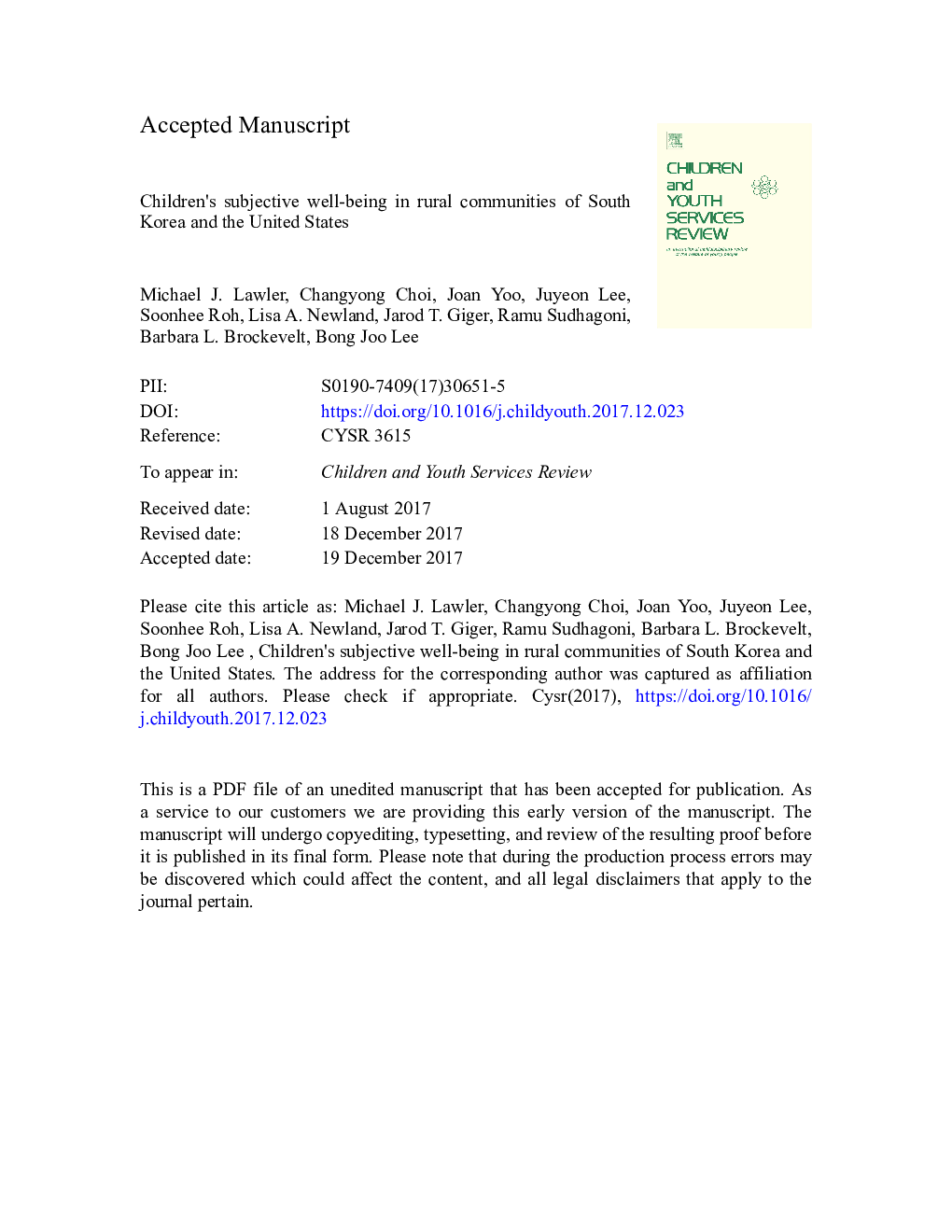| Article ID | Journal | Published Year | Pages | File Type |
|---|---|---|---|---|
| 6833397 | Children and Youth Services Review | 2018 | 30 Pages |
Abstract
The study examined subjective well-being of 10- to 12-year-old children from rural South Korea (n = 489) and rural United States (n = 1286) using the Children's Worlds Survey within the framework of the ecological, relationship-based model of children's subjective well-being. Applying Structural Equation Modeling to the analysis, a large proportion of the variance was explained and children's subjective well-being was predicted in both countries by microsystem factors of family relationships, parent involvement, and school quality, and individual factors of age (younger), and gender (male). Additional microsystem factors predicting subjective well-being were neighborhood quality in South Korea, and peer relationships in the United States, which may reflect contextual influences of collectivistic (South Korea) and individualistic (United States) macrosystems.
Related Topics
Health Sciences
Medicine and Dentistry
Perinatology, Pediatrics and Child Health
Authors
Michael J. Lawler, Changyong Choi, Joan Yoo, Juyeon Lee, Soonhee Roh, Lisa A. Newland, Jarod T. Giger, Ramu Sudhagoni, Barbara L. Brockevelt, Bong Joo Lee,
